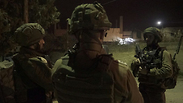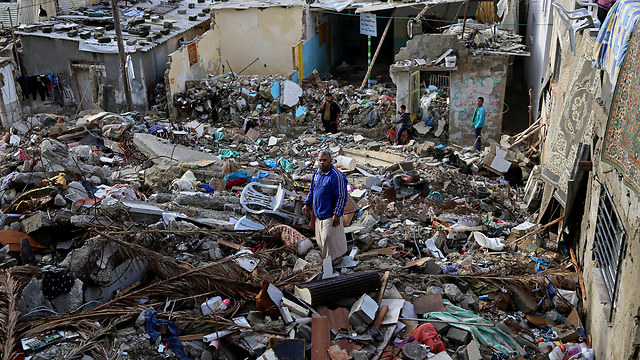However, the escalation of hostilities since March, and the renewed rocket fire on the Gaza border communities, indicate that despite the military achievement, the government has failed to turn it into a diplomatic one as well.
Hamas found itself on its knees by the end of the operation, but Israel appears to have missed an opportunity to take advantage of it in order to achieve a long-term quiet. And the last few months have been proof of that.
It’s important to remember that the scale of the rocket fire has declined over the past three years and eight months, with only 60-70 rockets and mortar shells being fired. In addition, the number of terrorist infiltrations from the strip into Israel has been limited. And perhaps most important is that Hamas could not smuggle advanced weapons or acquire exceptional capabilities, unlike Hezbollah, that since the Second Lebanon War in 2006 has been able to build up its military capabilities in quite the concerning manner.
The diplomatic window of opportunity that opened by the end of Protective Edge has closed in the last few months. Since March, we have been witnessing a change of direction and in the power relations in the region.
The deterrence achieved in 2014 has eroded, and Hamas is actually the one that sets the rules of engagement. The group begins and concludes escalations on the southern border when it’s convenient for it. Moreover, over the past three months, Hamas has managed to burn many acres of agricultural land and inflict a painful, economic blow to the border region’s economy.
The IDF is also paying the price. Over the last few months, we have seen that the short rounds of fighting against Hamas and Islamic Jihad did not achieve the desired result. Even when the army has the justification to act, it does not end the fighting with the desired result of eliminating rocket-launching cells or senior terrorist commanders.
It has been four years since the operation and we need to ask, where are the commanders of Protective Edge? Well, defense minister Moshe Ya'alon has long since lost his office in the Kirya base to Avigdor Lieberman and is now looking for a future in politics, while former IDF chief of staff Benny Gantz is testing the waters and examining options to enter politics. The GOC Southern Command, Sami Turgeman, is at a research center in Washington and is expected to return next month, and then-Gaza Division commander Mickey Edelstein has been appointed as Israel's military attaché to Washington.
Finally, what about the field commanders? Paratroopers Brigade commander Eliezer Toledano and Nahal Brigade commander Uri Gordon were promoted, while Givati Brigade commander Ofer Winter and Golani Brigade commander Ghassan Alian were passed over for a promotion.
What lessons did we learn? On the eve of Protective Edge, Hamas had 32 underground tunnels, 15 crossing the border fence and merely 11 known to the Military Intelligence. The IDF has improved its tunnel detection capabilities, established an underground barrier that won't be completed for another year, but by next summer will already provide a hermetic solution.
In addition, a tech lab was established by the Gaza Division, which manages to locate the tunnels' route—an achievement that recently won it the Israel Defense Prize. A new method of sealing tunnels has also been developed. The result: ten new Hamas tunnels have been foiled over the past year alone.
In light of that, the terror group made a strategic decision to stop digging new tunnels and to accelerate the digging of the existing ones, since the window of opportunity to use this modus operndi is closing.
There have also been improvements in our air defense capabilities: The Iron Dome is currently capable of not only intercepting missiles with an accuracy rate of 90 percent, but also to intercept mortar shells intended to strike in shorter distances.
Overall, our military capabilities have indeed improved, but the overall deterrence has been eroded. Despite the impressive military achievements over the past four years, the general policy adopted by the government not only failed to neutralize the threat from the strip, but it also exacerbated the pressure cooker that could soon explode in our faces.




















